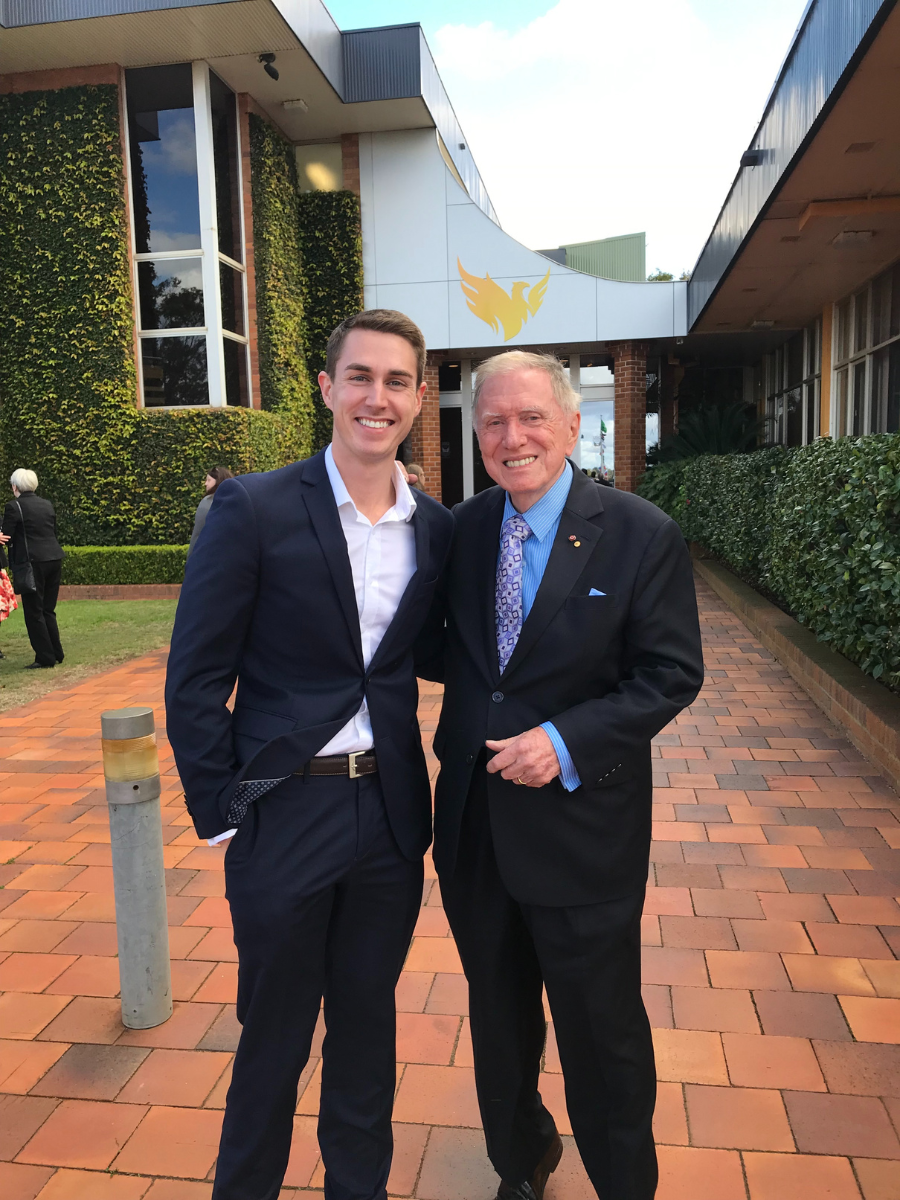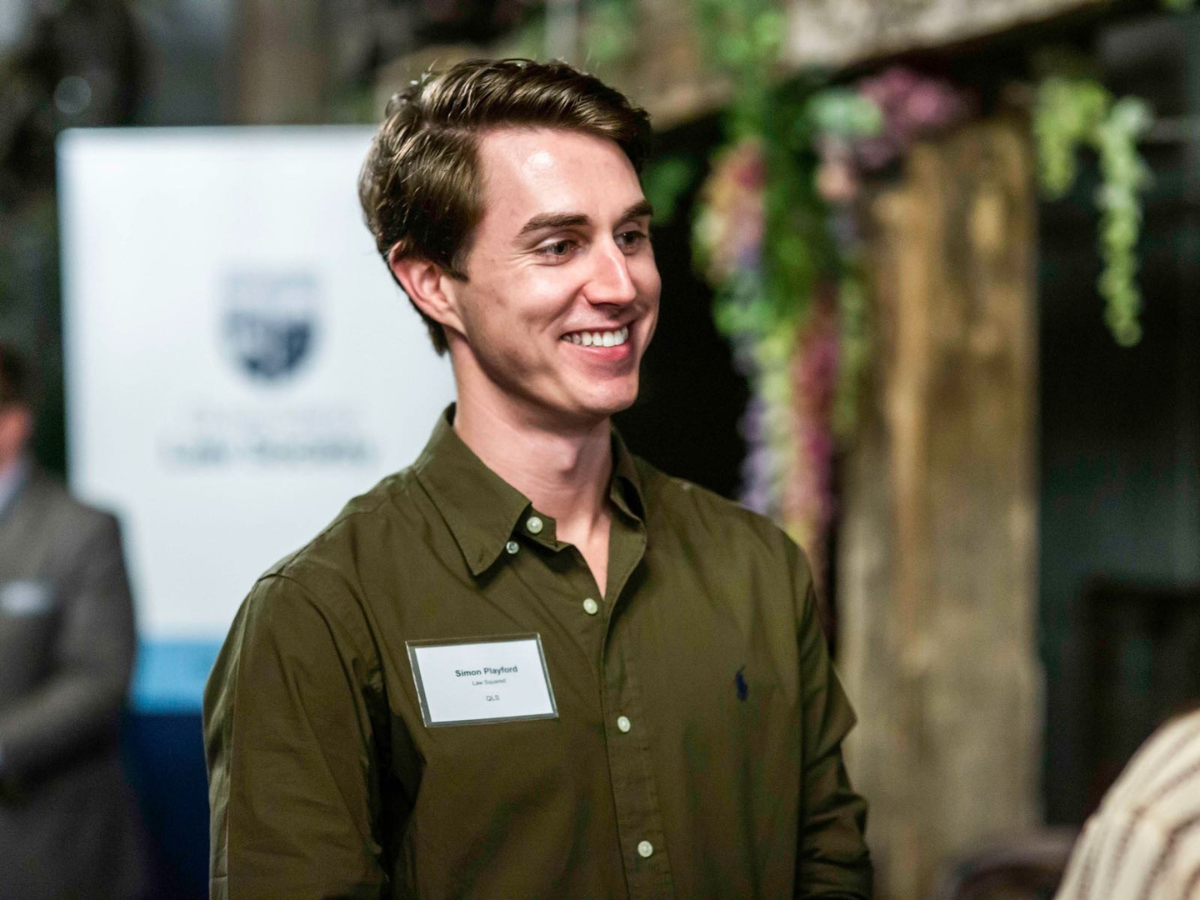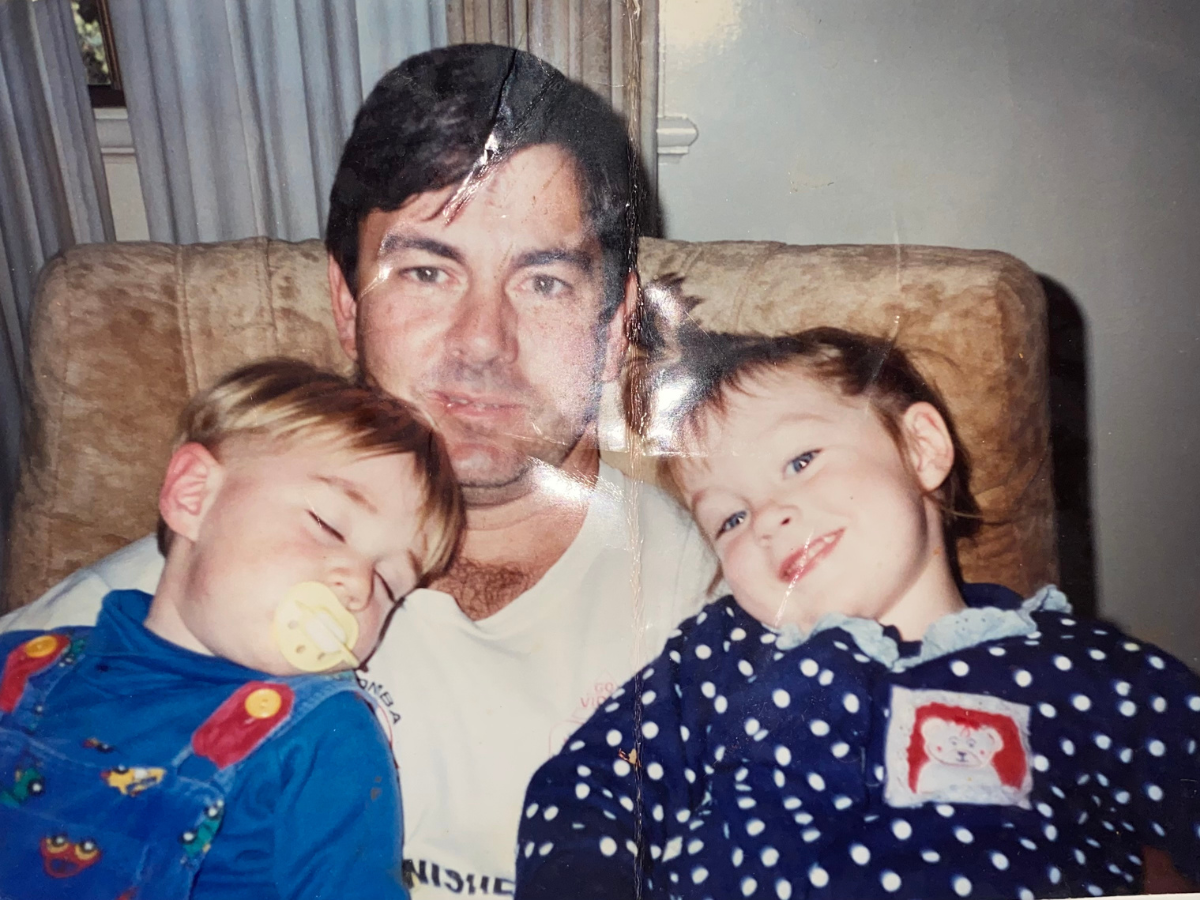Meet Simon Playford. Simon is the Deputy President of the QLS Future Leaders Committee (FLC), and is Legal Counsel at the Heart Foundation.
We spoke to Simon about the FLC, growing up in the country and starting his legal career in a small regional firm, and how to get involved in your community. Read the full interview below.
Tell me a little bit about yourself
I am in my late 20s, and my pronouns are he, him and his. I’ve been practising law for over 5 years. I’ve worked at two firms previously, and now I’m in-house. I moved to Brisbane right before COVID, which was an interesting time to move from the country to the ‘big smoke’, only to go into lockdown. Luckily, the firm I was with at the time was all over remote work, and I think I’d been working remotely three days a week anyway, so it was business as usual, but I know others struggled.
I grew up in Pittsworth, out past Toowoomba. I’m a massive hometown promoter. I love it there, and the community is stunning. I wouldn’t be where I am today or as happy as I am today if it wasn’t for the help, support and love the community gave to our family over the years during some tough times.
After high school, I moved to Toowoomba to study at the University of Southern Queensland. I became heavily involved in different clubs and societies on campus. While at university, I was a director of a not-for-profit alongside one of the directors of my first law firm. I was a director for four years before he said, “Hey Simon, you’re a law student. Do you want to come in for an interview for a law clerk job?” And then I got a job! One of the directors is actually from the Pittsworth area, so we bonded over being from the country and always laughed about country ockerisms.
Nice! So you’re a country boy.
Yeah, a country boy and I love it. There are subtle differences between country and city. When I first moved here, it was like, oh, people don’t like having conversations in elevators. You’re definitely viewed as a little odd if you’re asking people about their day or wanting to speak to them in an elevator. Whereas, in the country, I think everyone is a little more conversational. Those are the subtle differences.
Why did you decide to study law?
It was in my legal studies class in year 10. I found it rather cool to learn about our democratic system and how the courts and the legislature make laws. Laws regulate everything you do in life, such as if you’re going to drive a car, use your computer, or enter into a contract to buy a house. Law is so all-encompassing, and I found that quite fascinating as a young adult. I also wanted to be a politician, and a lawyer was an excellent way to achieve that.
What’s your experience working in law been like so far? Have you enjoyed it?
I have, definitely! I believe there are a couple of reasons why I’ve had a pleasant experience so far. One was having that initial experience in a law firm before being admitted as a solicitor. I was lucky enough to get a job as a law clerk, which included some work as a paralegal, and then went on to become a solicitor at the same firm. So, I understood what working in a law firm entailed and didn’t have to worry about grad programs or clerkships. That was one less stress on my shoulders. I didn’t really buy into the top-tier pathway, although it seemed like it was the only option at the time. I was very fortunate to have started my career in a supportive firm, and I believe it’s what has contributed to me finding my feet quite early and being comfortable and confident.
Another reason I’ve enjoyed working in law is that you are surrounded by brilliant people from different and diverse backgrounds from whom you can learn much. We learn new things every day, which makes me happy. As society continues to develop, so does the law, and lawyers play a big part in helping the public navigate the system.
Also, the legal profession is changing. We are an ancient profession and proudly carry traditional values. But we’re also adjusting to technology in our everyday life, which will produce exciting new ways of working. So, I believe the profession will experience a period of transformation over the next five to ten years, balancing these traditions while fostering new technological advancements.
Why did you decide to move in-house? What area of law were you practising in before?
When I was hitting the end of my two years supervision period, my mentor and director at the time asked, ‘where do you want to practise, what area?’ and I was sort of split over a couple. I was doing a little bit of litigation, a little of intellectual property, predominantly in commercial and property law, so a little bit of everything. I was torn for so long about what practice area I would specialise in, which would be the area I’d sit in for the rest of my career.
But I really liked knowing a little bit about a lot of things, and I’ve always been that way. So, I had the undertones of commercial and business law and then just touched and grabbed a bit of each practice area, enough to be classified as a generalist. So, I thought my next step in law was somewhere I could work as a generalist commercial lawyer.
From there, it was a no-brainer to think about moving in-house. I took the leap after coming to terms with the fact that an in-house lawyer is where you can practise a bit of everything and then outsource to specialists when matters are not within the ambit of your experience or knowledge—sort of like a GP in the medical world. You’re assessing and advising the business who is your patient, and then you’re touching base with a specialist or expert when you need to.
That’s a good analogy!
A good friend once used it to describe a banker in the financial industry, and I was like, ‘hey, I like that!’. But, as a clerk and graduate lawyer, the exposure to different areas of law was truly invaluable. It allows you to forge a path in the law that brings enjoyment and fulfilment because your career is a marathon, not a sprint.
People upsell the top-tier practices, but I had a wonderful experience working for six and a half years at a local firm in Toowoomba. They had a class action case, the first one in the Supreme Court in Queensland, and were acting for a large national business. The exposure you can get at a small law firm in a regional area, the direct client access, the personal mentoring, I wouldn’t pass up that experience for anything. It sets you up for a fulfilling career.
You already kind of touched on this, but are there any changes you would like to see in the legal profession?
The profession could definitely benefit from rethinking its position on time. We live in a world of instantaneous communication and work under incredible time pressure. Whether it’s client-driven time pressure, law firms expecting their lawyers to work quicker and harder, or lawyers competing against the clock to advance in their role. Not everything is urgent or needs to be! It creates unnecessary pressure, doesn’t role model good work/life balance, and facilitates an environment that is not conducive to a long legal career.
We should be working on setting better boundaries in our work life to enable a better quality of life for the profession and practitioners. This can only happen with a top-down approach, starting with partners of law firms and managers acknowledging and respecting that people have lives to live outside their 9 to 5.
We all hope for a long, fulfilling career in law, and for that to happen, we need to be a bit more realistic with what that looks like in practice. Like building awareness around mental health, sharing best practices on dealing with the stressors of our job, or how to set boundaries to foster better work-life balance. It’s all about compounding interest. Small actions taken daily will compound over time and help ensure we’re looking after ourselves and our colleagues.
Tell me about being on the Future Leaders Committee (FLC). What kind of stuff do you do?
Being on the FLC has been an enjoyable experience. I’ve met some incredible, talented, smart change-makers dedicated to changing the legal profession and tackling the more significant problems facing young lawyers. Well, as much as possible from a QLS perspective and within Queensland. But we do have a seat at the table of the Young Leaders Committee for the larger Law Council of Australia, which is pretty cool.
For the two years we’ve had to play with, the FLC team have laid a solid foundation for future committee members. We’ve added value to a young practitioner’s life through the Hub and our podcast ‘The Callover’. We were given a platform to toy with some ideas, work on projects and implement them.
What would you recommend for other early career lawyers who would like to join the FLC?
It was way more competitive than I expected! We had like 76 impressive young lawyers stick up their hands to be in the FLC initially. But my advice to those young lawyers who want to get involved is to stick up their hands and apply at the next election. If you don’t make it to the FLC, there are other ways to get involved at QLS and on working groups or committees where you can still positively impact the profession. Also, look at your district law association because things are always happening more intimately, which is vital to the fabric of the overall law profession and that particular region.
You can also contribute in other ways, like writing articles, how-to guides or engaging on issues that matter the most to you on your social media. Some organisations like Queensland Young Lawyers or the Legal Forecast are doing great things. You can even volunteer at community legal centres. So, there is a plethora of ways in which you can contribute to the profession.
What do you like to do in your downtime?
I usually spend a lot of time with friends because they bring me such joy, whether going to the gym, having brunch, or having board game nights. COVID definitely highlighted the important role that friends play in your life and the guidance, help, reassurance and support they provide to you during the highs and the lows of life, which is so important. I also love spending time with my family, especially my two little nephews.
Who’s your role model or greatest influence?
I always look to my dad for that on two different levels. One is the fact that he was such a tremendous communitarian. He was super passionate about what he could give back to his local community. The second is that he was a massive family man, just this loveable human who would do anything for me, my sister and my brother. I remember when my nan was still babysitting me as a young child, I would interrupt his working day by calling him to see if he could drop off some chicken chips for lunch, and he always did. He modelled the characteristics I admire in a person, being kind, humble and always there to lend a hand. It’s those characteristics that I try to live up to.
I want to be there for my friends and family as much as possible, to be that humorous, supportive relief for people in their stressful lives. But meanwhile, I also appreciate what it means to give back to society, whether using our privilege as lawyers to work in a community legal centre, sit on a board or work for a charity. We are fortunate to be lawyers because a significant portion of people around the globe doesn’t get an opportunity to do so. So, if there are ways you can use this privilege we have as lawyers to better the world, or even your local community, then why not?
What is your favourite food?
At the moment, I’m really vibing sashimi. Salmon, tuna, kingfish… there’s something to say about food that hasn’t undergone much processing. There’s just so much flavour and texture, and it’s fresh and always well-presented.
Do you have any general advice or parting words?
I’ve always come back to ‘being a sponge.’ Soak up that knowledge and find a good mentor. Whether you’re a graduate, an associate, or a senior associate, you never stop learning, so soak up as much as you can. Prioritise learning and development because the more you know, the more perspective you have in life, the better off your clients will be, and the more fulfilling your career will be. Just listen to people and hear what they have to say.



